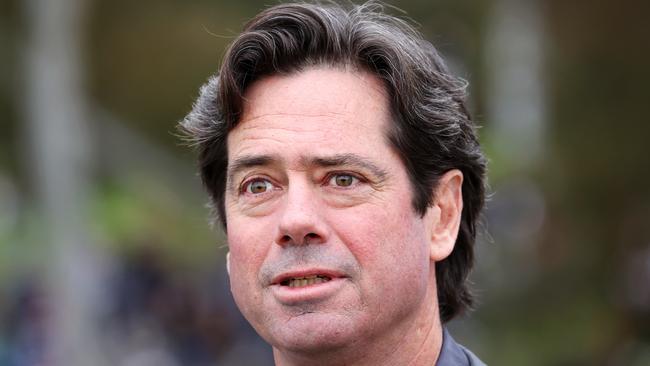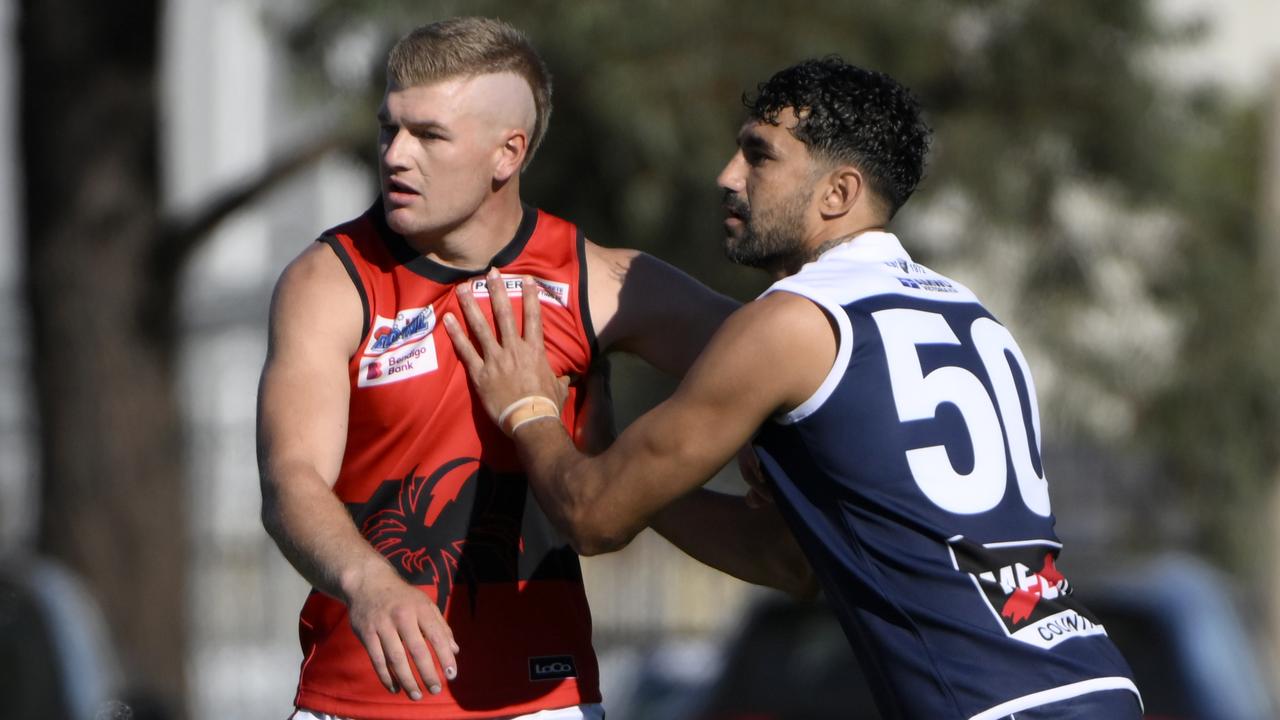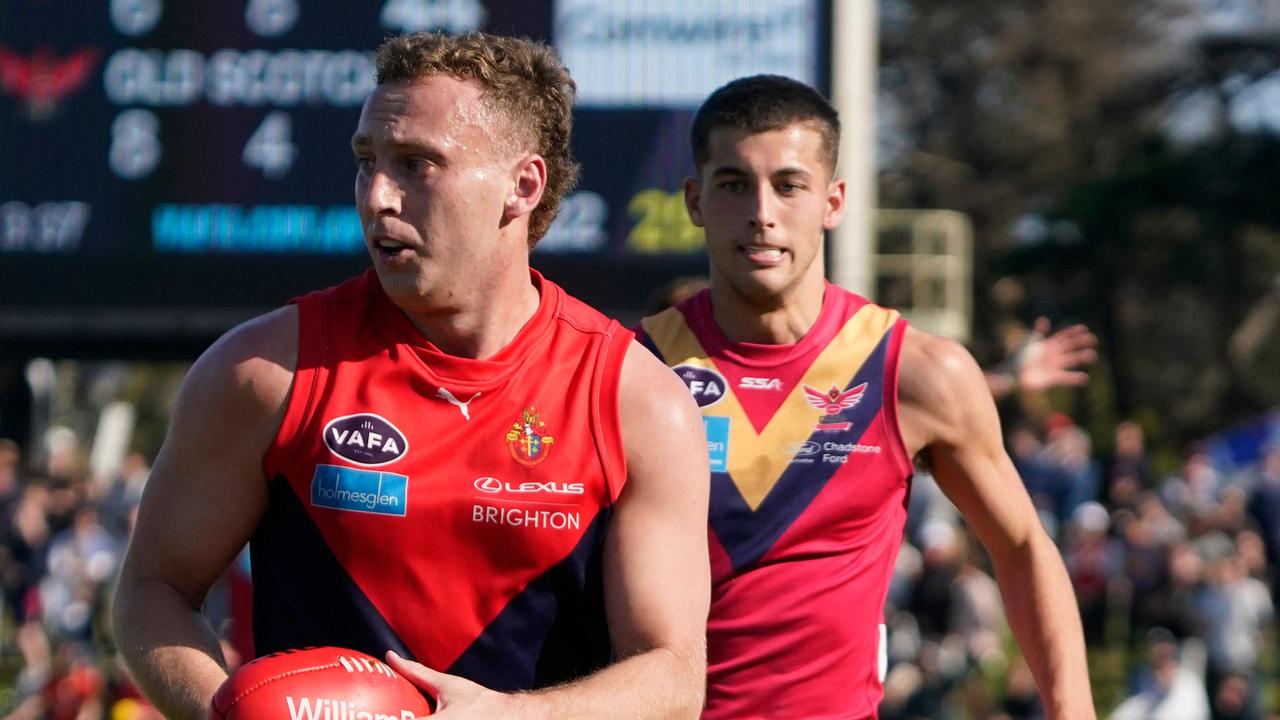AFL set to employ club development leads across regional Victoria
Country footy clubs are set to be handed a much needed lifeline by the AFL as the game’s governing body aims to stop more clubs from closing their doors.
Local Footy
Don't miss out on the headlines from Local Footy. Followed categories will be added to My News.
The AFL is deploying an elite squad of experts across the state to help save local footy clubs battling for survival.
The club development leads are being employed across country regions to guide clubs and leagues in everything from administration to player’s mental health.
With some clubs and leagues battling after impact of Covid and a drop in volunteers, AFL Victoria’s community football manager John O’Donohue said those employed would be tasked with supporting volunteers and assisting them with key duties at their clubs.
“There was probably a gap in our offerings to community footy – that club support,” he said.
“We’ve invested previously in participation, governance and those types of things but actually providing resources that can assist clubs and their volunteers is probably the gap.”
Don’t miss the Sunday Herald Sun Local Footy ultimate season 24-page liftout previewing metropolitan and country leagues across the state next week.
AFL modelling shows that a junior player coming up through the grades to AFL level would have been exposed to more than 30 volunteer roles, filled by more than 400 people, collectively contributing more than 10,000 volunteer hours.

A key role of the development leads would be to provide the guidance and support to the volunteers while growing their numbers across the state.
“Sometimes it can be a daunting task for a volunteer to walk in and not know where to go,“ Mr O‘Donohue said.
“It probably fills that gap that has been there for a little while. In metro Melbourne, leagues employ club development officers so this is the equivalent that will go into other regional areas of the state.”
Geelong AFL premiership player Tom Stewart, who was famously drafted as a mature aged player after starring at local level for South Barwon, welcomed the new initiative.
“I think coming off the back of Covid, people would’ve lost that sense of connection with their communities,” he said.
“This program is a fantastic initiative to allow that funding to come back into grassroots and allow volunteers to come and help.
“Volunteers are the heartbeat of all footy clubs. I don’t think you can undersell or undermine the efforts of those who do it for free.
“I’ve been lucky to deal with some incredible volunteers at both South Barwon and Geelong who all do it for the love of the game.
“Every footballer who plays at the elite level would be nowhere without their junior clubs and volunteers behind the scenes”.

O’Donohue said the state’s governing body was now recruiting with the hope of getting people in the field “as soon as possible”.
“We want people with life experience that are known within the footy community,” he said.
“They know how the footy community works, they know the challenges of the volunteer and the benefits of volunteering as well.”
“This can help to make sure clubs can maximise the potential each club has to be informed of every program and funding they might have access to.
“We’ve had support through our regional officers but to have a designated club development lead that can work face-to-face with a club it’s going to be incredibly important.”

Meanwhile, clubs impacted by Victoria’s horror flooding in recent months are also continuing to benefit from AFL support.
The AFL has entered into a partnership with AUSCO Modular to construct a rapid deployment modular set of change rooms which were constructed over summer.
These will be used at Goulburn Valley league club Shepparton Swans whose clubrooms were severely damaged in the 2022 floods.
The facilities will be ready for the club’s first home game in late April and will be delivered from Adelaide.
“This room can be used over 30 years, we can shift it around, the AFL owns it,” the AFL’s head of facilities Shayne Ward said.
“It might end up supporting between 15 and 20 sites over that 30-year period. Hopefully this is a big success and becomes a wider flexibility and scale and we can do more if clubs need it.”
Since the start of 2022, the AFL has supported community football through a funding program known as the Strategic Community Investment Fund (SCIF).
The AFL has provided $1.65M to support nearly 200 applications from 140 clubs through this program.




